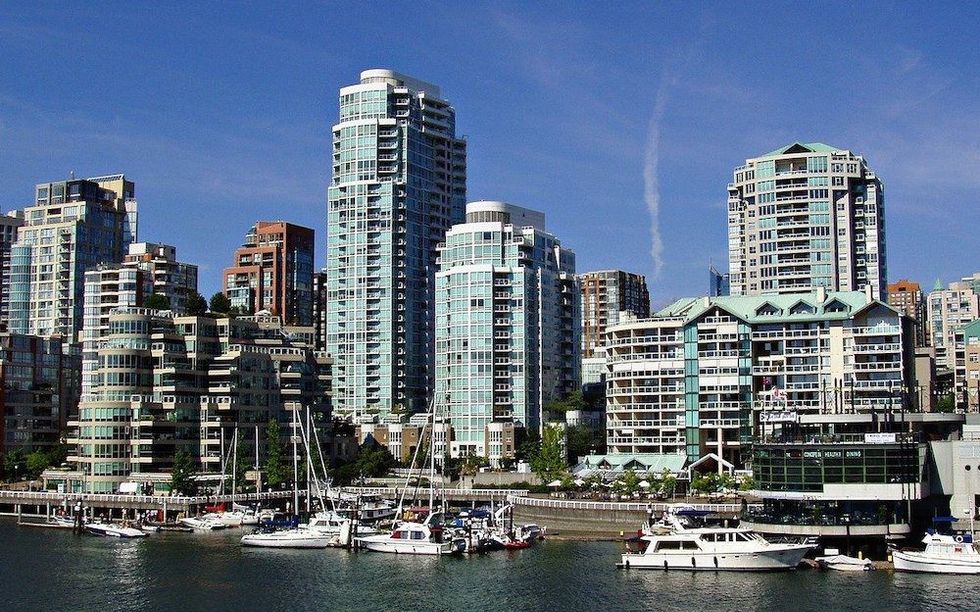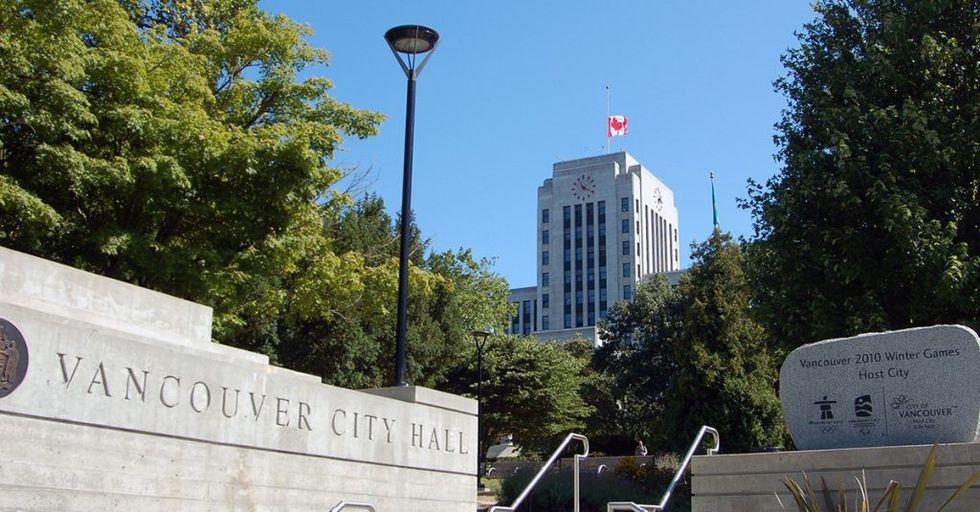Incumbent Mayor Kennedy Stewart revealed details of his housing plan on Tuesday, and his rivals in the Vancouver mayoral race wasted no time to start picking it apart.
Stewart's housing plan consists of five points:
- Approving and enabling 220,000 new homes over next 10 years including:
- Extending the toughest renter protections in Canada across the whole city and continuing to add permanent vacancy control to many new rental units;
- Modernizing the public hearing and permitting process to be more efficient;
- Creating new specialized project approval teams for large impact projects; and
- Maintaining the Empty Homes Tax at at least 5%
The numbers are certainly eye-catching and there isn't any point that most people would staunchly argue against, but they still drew an abundance of criticism.
220,000 New Homes
Of the 220,000 new homes Stewart plans on approving, 140,000 would be market rental, below-market rental, co-op, or social housing units. Another 40,000 would be "ground-oriented" homes targeted at the middle-class, with the remaining 40,000 consisting of market-value condos and townhouses for purchase.

Progress Vancouver's candidate, Mark Marissen, believes that Stewart is "recycling his housing plan from last time" and "tripling the targets he hasn't even met." Marissen is referring to the City of Vancouver's "Housing Vancouver" strategy, which was adopted in 2017 and set a goal of 72,000 new homes across Vancouver within 10 years. According to an official December 2021 update, 52% of that goal has been met, at just about halfway through the 10 years.
In a statement, ABC Vancouver's Ken Sim addressed the point as well. “When it comes to social and supportive housing, Kennedy has encouraged an environment of quantity over quality. What’s being offered today in supportive housing is woefully inadequate," Sim said, while referring to the quality of Vancouver's Single Room Accommodations (SRA), which some have said are so bad that tenants prefer living in tents on the street.
READ: Vancouver SRA Rent Control Bylaw Quashed By BC Court, City To Appeal
In a brief statement of her own, Colleen Hardwick, the mayoral candidate for TEAM For A Livable Vancouver, said "22,000 a year is both unachievable and unneeded with 100,000 units in the pipeline already." The final candidate, the Non-Partisan Association's Fred Harding, did not release a statement or respond to a request for comment by STOREYS.
Renter Protections
On renter protections, Stewart said enhanced protections would include "paid relocation to and from interim housing, developer-backed subsidy for any rent increase, right of first refusal to return to newly developed property at the same or lower rent, and vacancy control mechanisms to guarantee these rents remain 20% below CMHC’s city-wide average for the life of the building."
Stewart also added that these protections will help guide development away from existing rental buildings and towards areas currently inaccessible to renters. Previously, existing cheap rental buildings, such as those in Burnaby's Metrotown area, were demolished in the name of transit-oriented development, but resulted in more expensive rentals, at least in part due to those units being new.
READ: Do SkyTrain Expansions Really Better Vancouver’s Affordable Housing Problem?
Those concerns arose again as it relates to the Broadway Plan, with residents of the area protesting the project before it was even approved. The plan Stewart announced addresses those concerns directly, saying "no renter would see their rents go up in the event their building is redeveloped."
On this point, Stewart received noticeably less criticism. TEAM's Colleen Hardwick said that she believes it won't work because developers won't agree to it, and candidates for the other parties did not address the point directly or respond to requests for comment.
Increasing Efficiency

To "modernize" the public hearing process and permitting process, Stewart said he would continue working with the provincial government to make regulatory adjustments to the Vancouver Charter, in order to speed up processes.
The lack of efficiency is another point Stewart has been repeatedly criticized for. In a previous interview with STOREYS, Progress Vancouver's Mark Marissen pointed to the Vancouver Plan as an example of Stewart's inefficiency. “The Vancouver Plan was started at the beginning of the term. After four years all city hall has to show for it is a glorified visioning document. It is a plan to make a plan, one that doesn’t actually change the bylaws that prevent the construction of needed homes," he said.
READ: Mark Marissen, Vancouver Mayor Candidate, Talks “Urgency and Scale” of Housing Challenges
Marissen continued with that line of criticism following Stewart's announcement of his housing plan, saying on Twitter that "Kennedy Stewart’s record of failure on Vancouver’s housing crisis proves that he lacks the political courage and ability to get new homes built for Vancouverites."
ABC Vancouver's Ken Sim was also sharp in his criticism on this point. In a statement, Sim said that “In the City of Vancouver, it takes longer for a high-rise apartment building to get built than it did to fight and win in World War II." He also added that “Kennedy Stewart’s inaction on housing has directly led to the situation we see today -- an unaffordable city where younger generations are unable to see a future for themselves and the most vulnerable do not have access to adequate housing." TEAM's Colleen Hardwick did not address the point and the NPA did not respond to request for comment.
Other Criticisms and the Election
On creating specialized project approval teams, Stewart said he would use the River District team as a model for projects such as the Broadway Plan, North and South False Creek, Sen̓áḵw, and others. On maintaining the Empty Homes Tax, Stewart said his goal is to continue "push[ing] empty homes back onto the housing market" and "focus on providing homes for women and children, including those fleeing violence." Both points received little to no criticism from the other candidates.
ABC Vancouver's Ken Sim, who some polls have identified as Stewart's biggest rival, said Stewart has had four years at the helm and that "his housing record speaks for itself." ABC Vancouver has yet to release its own housing plan, but have said they will release a 40-point plan soon. Previously, Forward Together, Stewart's party, has criticized Sim for misinformation ad campaigns.
TEAM's Colleen Hardwick summarized Stewart's plan as "simply unbelievable", saying that "it is a dream come true for major corporate developers." TEAM has been labeled a party that's "anti-development", a label the party has argued against, saying they want to "manage" growth rather than "promote" it.
On Stewart's plan, Progress Vancouver's Mark Marissen said "the whole plan is a paper tiger, with a flashy number at the top to catch attention." In interviews, Marissen has said that his top three priorities are all housing-related.
The Non-Partisan Association has released no details about their housing plan, with their mayoral candidate, Fred Harding, a former police officer, positioning himself as what's typically called the "law and order" candidate. When asked about their housing plan, the NPA told STOREYS that their housing plan is on the way.
Kennedy Stewart is the incumbent so rivals are naturally inclined to criticize him. Candidates also have the benefit of not having as extensive or prominent of a record for people to dissect, like an incumbent does. STOREYS has also reached out to Forward Together and Mayor Stewart to give him a chance to respond to the criticisms, but no response has been made as of publishing. Election Day is Saturday, October 15.
This story has been updated to reflect requests for comment.





















